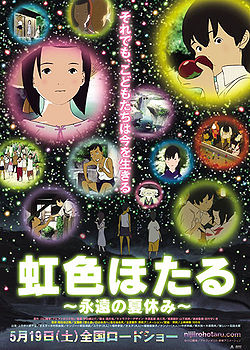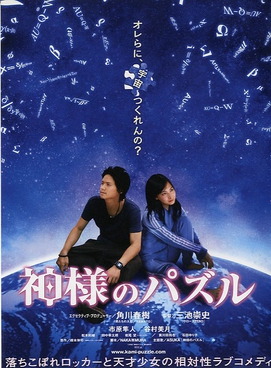| Personal information | ||||||||||||||||||
|---|---|---|---|---|---|---|---|---|---|---|---|---|---|---|---|---|---|---|
| Nationality | Japanese | |||||||||||||||||
| Born | 18 March 1969 Fujisawa, Japan | |||||||||||||||||
| Sport | ||||||||||||||||||
| Sport | Windsurfing | |||||||||||||||||
Medal record
| ||||||||||||||||||
Motokazu Kenjo (born 18 March 1969) is a Japanese windsurfer. He competed at the 2000 Summer Olympics and the 2004 Summer Olympics. [1]
| Personal information | ||||||||||||||||||
|---|---|---|---|---|---|---|---|---|---|---|---|---|---|---|---|---|---|---|
| Nationality | Japanese | |||||||||||||||||
| Born | 18 March 1969 Fujisawa, Japan | |||||||||||||||||
| Sport | ||||||||||||||||||
| Sport | Windsurfing | |||||||||||||||||
Medal record
| ||||||||||||||||||
Motokazu Kenjo (born 18 March 1969) is a Japanese windsurfer. He competed at the 2000 Summer Olympics and the 2004 Summer Olympics. [1]

The modern Olympic Games are the world's leading international sporting events. They feature summer and winter sports competitions in which thousands of athletes from around the world participate in a variety of competitions. The Olympic Games are considered the world's foremost sports competition, with more than 200 teams, representing sovereign states and territories, participating. By default, the Games generally substitute for any world championships during the year in which they take place. The Olympics are staged every four years. Since 1994, they have alternated between the Summer and Winter Olympics every two years during the four-year Olympiad.

The Summer Olympic Games, also known as the Summer Olympics or the Games of the Olympiad, is a major international multi-sport event normally held once every four years. The inaugural Games took place in 1896 in Athens, Greece, and the most recent was held in 2024 in Paris, France. This was the first international multi-sport event of its kind, organized by the International Olympic Committee (IOC) founded by Pierre de Coubertin. The tradition of awarding medals began in 1904; in each Olympic event, gold medals are awarded for first place, silver medals for second place, and bronze medals for third place. The Winter Olympic Games were created out of the success of the Summer Olympic Games, which are regarded as the largest and most prestigious multi-sport international event in the world.

The 1996 Summer Olympics were an international multi-sport event held from July 19 to August 4, 1996, in Atlanta, Georgia, United States. These were the fourth Summer Olympics to be hosted by the United States, making it the first country to have three different cities host the Summer Olympics. It also marked the 100th anniversary of the 1896 Summer Olympics in Athens, the inaugural edition of the modern Olympic Games. These were also the first Summer Olympics to be held in a different year than the Winter Olympics since the same time practice commenced in 1924, as part of a new IOC practice implemented in 1994 to hold the Summer and Winter Games in alternating, even-numbered years. The 1996 Games were the first of the two consecutive Summer Olympics to be held in a predominantly English-speaking country, preceding the 2000 Summer Olympics in Sydney, Australia. These were also the last Summer Olympics to be held in North America until 2028, when Los Angeles will host the games for the third time.

The 1992 Summer Olympics, officially the Games of the XXV Olympiad and officially branded as Barcelona '92, were an international multi-sport event held from 25 July to 9 August 1992 in Barcelona, Catalonia, Spain. Beginning in 1994, the International Olympic Committee decided to hold the Summer and Winter Olympics in alternating even-numbered years. The 1992 Summer and Winter Olympics were the last games to be staged in the same year. These games were the second and last two consecutive Olympic games to be held in Western Europe after the 1992 Winter Olympics in Albertville, France, held five months earlier.

The 1984 Summer Olympics were an international multi-sport event held from July 28 to August 12, 1984, in Los Angeles, California, United States. It marked the second time that Los Angeles had hosted the Games, the first being in 1932. This was the first of two consecutive Olympic Games to be held in North America with Calgary, Alberta, Canada hosting the 1988 Winter Olympics. California was the home state of the incumbent U.S. president Ronald Reagan, who officially opened the Games. These were the first Summer Olympic Games under the IOC presidency of Juan Antonio Samaranch.

The 1972 Summer Olympics, officially known as the Games of the XX Olympiad and officially branded as Munich 1972, were an international multi-sport event held in Munich, West Germany, from 26 August to 11 September 1972. It was the second Summer Olympics to be held in Germany, after the 1936 Games in Berlin, which had taken place under the Nazi rule. Germany became only the second country at that point after the United States to have two different cities host the Summer Olympics.

The 1920 Summer Olympics, officially known as the Games of the VII Olympiad and commonly known as Antwerp 1920, were an international multi-sport event held in 1920 in Antwerp, Belgium.

Hakata Station is a major railway station in Hakata-ku, Fukuoka, Japan. It is the largest and busiest railway terminal in Kyushu, and is a gateway to other cities in Kyushu for travelers coming from Honshu by rail travel. The San'yō Shinkansen from Osaka ends at this station.

The all-time medal table for all Olympic Games from 1896 to 2024, including Summer Olympic Games, Winter Olympic Games, and a combined total of both, is tabulated below. These Olympic medal counts do not include the 1906 Intercalated Games which are no longer recognized by the International Olympic Committee (IOC) as official Games. The IOC itself does not publish all-time tables, and publishes unofficial tables only per single Games. This table was thus compiled by adding up single entries from the IOC database.

The 2024 Summer Olympics, officially the Games of the XXXIII Olympiad and branded as Paris 2024, were an international multi-sport event held from 26 July to 11 August 2024 in France, with several events started from 24 July. Paris was the host city, with events held in 16 additional cities spread across metropolitan France, including the sailing centre in the second-largest city of France, Marseille, on the Mediterranean Sea, as well as one subsite for surfing in Tahiti, French Polynesia.
The Kashmir flying squirrel is a species of rodent in the family Sciuridae. It is monotypic within the genus Eoglaucomys. It is found in Afghanistan, India and Pakistan. Its natural habitat is subtropical or tropical dry forests. It is threatened by habitat loss. The Afghan flying squirrel is usually considered a subspecies.
Yakushiji Motokazu was a Japanese samurai of the early Sengoku period, who served the Hosokawa clan. Motokazu was a retainer of Hosokawa Masamoto and deputy governor of Settsu Province. In the Autumn of 1504 he rebelled against Masamoto and marched to Kyoto but his rebellion was defeated seventeen days later when Masamoto's forces took his castle of Yodo. Motokazu was captured and committed seppuku.

Gelatinous drop-like corneal dystrophy, also known as amyloid corneal dystrophy, is a rare form of corneal dystrophy. The disease was described by Nakaizumi as early as 1914.

The Japanese dwarf flying squirrel is one of two species of Old World flying squirrels in the genus Pteromys. During the day, this squirrel hides in a hole, usually in a coniferous tree, emerging at night to feed.

Rainbow Fireflies is a 2012 Japanese anime film directed by Kōnosuke Uda.
Motokazu "Taisanboku" Mori was a Japanese surgeon and tanka poet who practiced in Hawaii.
Motokazu is a masculine Japanese given name. Notable people with the name include:
Ishiko Mori was a Japanese physician and a correspondent for the Yomiuri Shinbun.

God's Puzzle is a Japanese science fiction film directed by Takashi Miike. The screenplay by Masa Nakamura is based on the novel God's Puzzle by Shinji Kimoto.